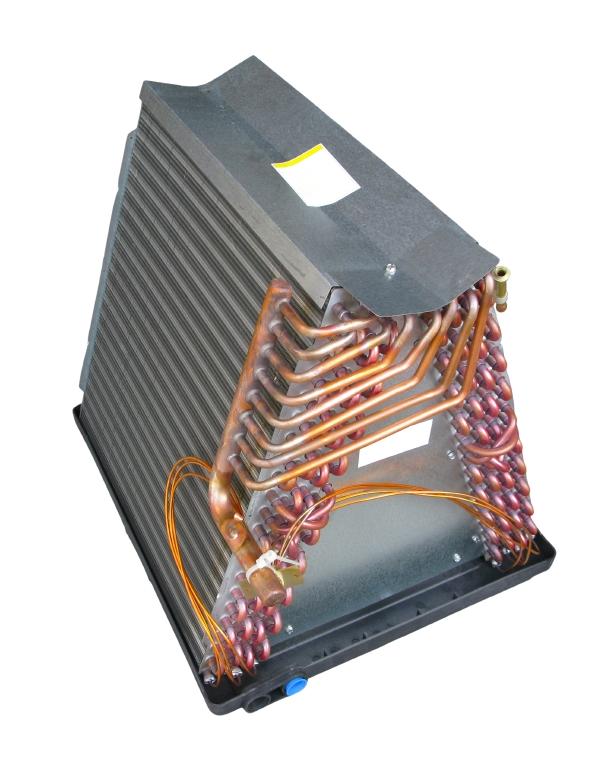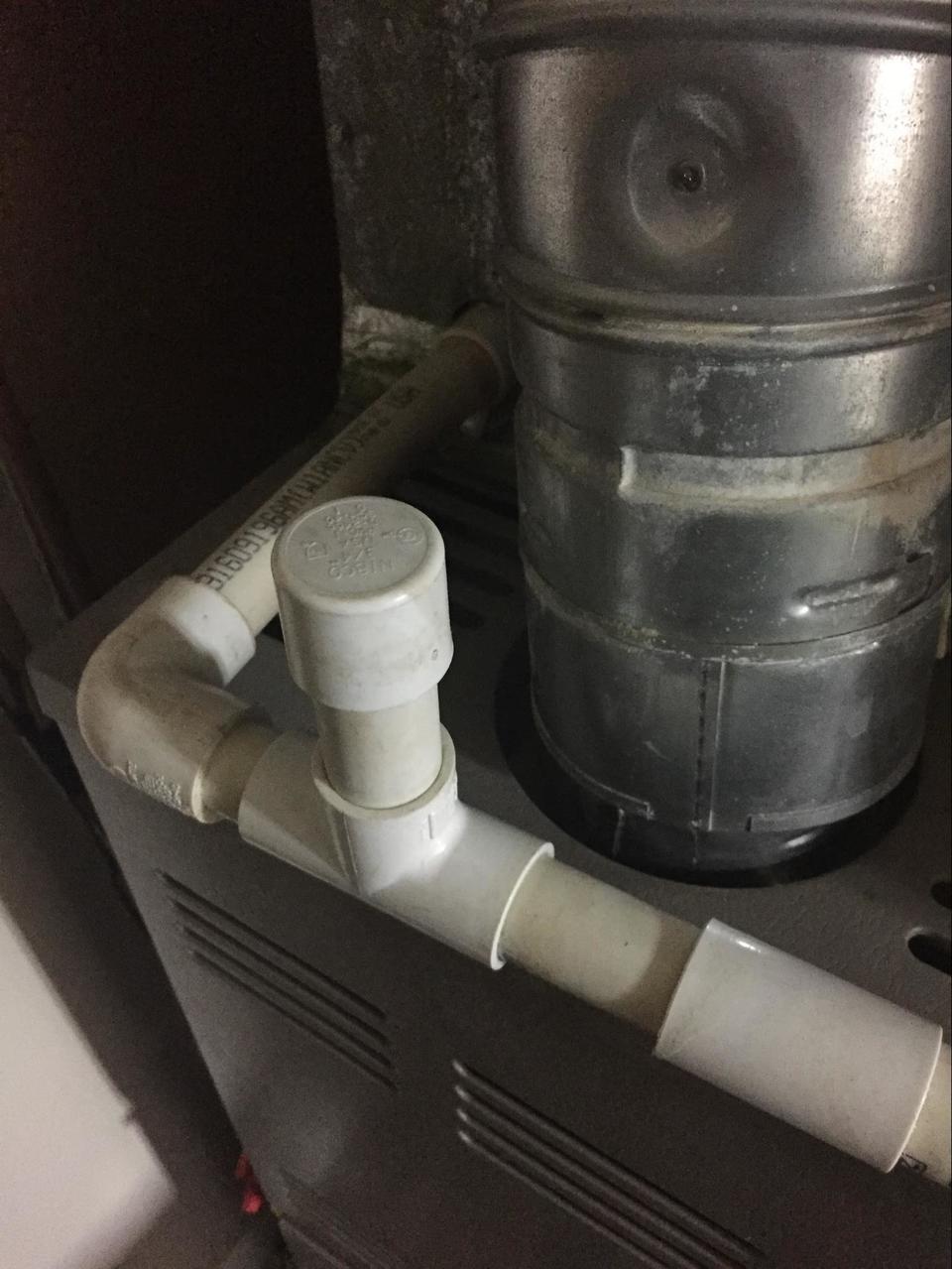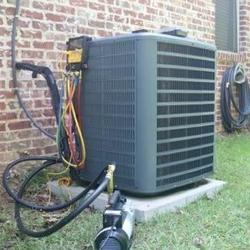Why Does My AC Smell Bad?
Nobody likes to deal with bad-smelling air coming from their AC.
The first step to figuring out what’s causing the foul odor is to identify the type of smell.
Below are the 4 most common AC smells:
- Musty smell (like dirty socks)
- Gunpowder or plastic burning odor
- Chemical smell
- Rotting smell
Go to the section that best describes the odor you smell and we’ll explain how to troubleshoot the problem.
Gain peace of mind when it comes to your AC with Advantage Air.
Want to get rid of the bad smell ASAP? We offer same-day AC repairs for all brands and models.
Bad smell #1: Musty smell
Of all the bad smells, a musty odor is the most common. A musty smell usually indicates that there’s mold or mildew growth somewhere in your air conditioner.
Mold usually grows in your air conditioner because of the following problems:
- Dirty evaporator coil
- Clogged condensate line
Dirty evaporator coil
One of the most common places for mold to grow is on the evaporator coil. The evaporator coil is the AC part that cools and dehumidifies your home’s air.

An evaporator coil
When warm, humid air blows over the cold evaporator coil, condensation forms. Normally, the condensation drains outside and doesn’t cause any problems. However, if your evaporator coil is dirty, then condensation can mix with the dirt to create mold, which would explain the musty smell.
Because it’s difficult to access the evaporator coil and the coils are so sensitive, we recommend hiring a professional to clean the coils instead of attempting to clean them yourself.
Clogged condensate line
The condensate line is a pipe that carries condensation out of your home. However, if the line gets clogged, water can back up into the drain pan. If the water sits in the drain pan long enough, mold can grow.
Besides the moldy smell, you’ll know your condensate line is clogged if:
- You see water pooled around the indoor unit
- Your AC shuts off unexpectedly after it runs for a short time
If a clogged condensate line is your problem, you can attempt to clear the clog yourself by trying the steps below. Or, contact a professional to clear the clog for you.
How to clear a clog in the condensate line
To clear the condensate line, do the following:
- Shut off power to your AC at the breaker and thermostat.
- Find the drain pan, which can be found underneath the indoor unit of your AC system.
- Clear out any standing water in the drain pan and use a bleach solution (1 cup of bleach, 3 cups of water) to disinfect any mold growth in the drain pan.

AC condensate line
4. Find the T-shaped PVC pipe coming out of the indoor unit and remove the cap (pictured above).
5. Pour distilled white vinegar into the pipe opening.
6. After pouring the vinegar down, wait 30 minutes. Then, pour hot water (does not have to be boiling) down the pipe to flush out any remaining debris.
If you don’t feel comfortable doing the steps above or if the clog persists after you’ve tried them, contact an HVAC professional for assistance.
Bad smell #2: Gunpowder or burning plastic odor
The smell of gunpowder or plastic burning is usually a sign of an electrical problem.
Air conditioners have several electrical components, including motors, circuit boards and wiring. If any of these parts overheat, they can give off a strong smell.
If you notice this smell, you’ll want to shut off your AC to prevent damage to your system. Then, contact a professional ASAP to find and repair the overheating part.
Bad smell #3: Chemical smell
If you smell a sweet, chemical chloroform-like scent, it’s likely refrigerant.
Refrigerant is the liquid that removes heat from your home’s air. It circulates throughout your AC in a closed loop, which means you should never be able to smell it unless there’s a leak somewhere.
Besides the chemical smell, other signs of a refrigerant leak include:
- A hissing or bubbling sound
- Warmer air coming from the vents in cooling mode
- Increased energy costs
If you notice those signs, contact an HVAC professional for help. Since refrigerant is potentially harmful if handled incorrectly, you’ll need professional assistance. A trained technician will be able to find the source of the refrigerant leak, fix it, and make sure your AC has the right amount of refrigerant.
Bad smell #4: Rotting smell
A rotting smell coming from your vents usually means there’s a dead animal in the ductwork.
Ducts are typically located in unconditioned spaces like an attic, where it’s easy for small rodents or other animals to take up residence. These little critters can find a small opening in the ductwork and get stuck inside. Unfortunately, these animals can die if they get stuck, hence the nasty rotting smell.
An AC professional can get into the ductwork and remove the dead animal. You’ll want to have a professional do this because the ductwork may need to be opened to retrieve the animal, and you want to make sure the ducts are reconnected properly once the job is complete.
Want an AC pro to fix whatever is causing the bad smell?
We offer fast AC repairs at honest prices. Because we don’t pay our technicians based on commission, you can have peace of mind knowing you won’t be sold on a repair you don’t actually need.
